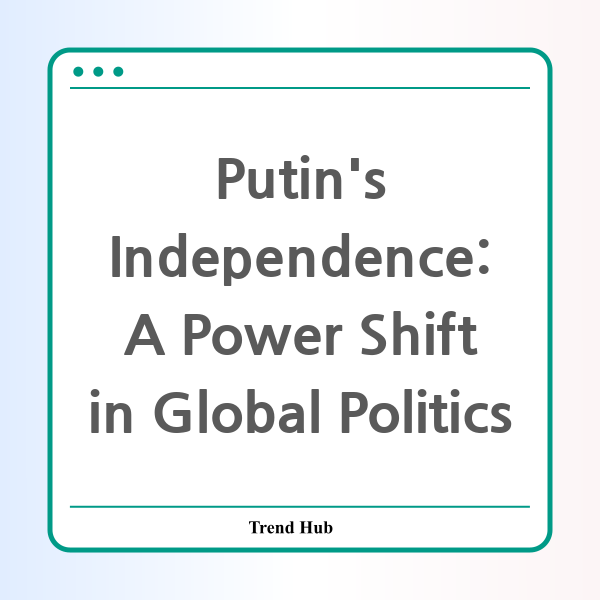* This website participates in the Amazon Affiliate Program and earns from qualifying purchases.

Is Vladimir Putin setting a new tone in global diplomacy?
The recent interactions between Russian President Vladimir Putin and former U.S. President Donald Trump have brought to light a significant shift in the dynamics of international relations, particularly concerning the ongoing conflict in Ukraine. As peace talks stall, the implications of these relationships are far-reaching and noteworthy.
In a recent call, Putin’s demeanor suggested he is unconcerned with Trump’s influence or approval. The Russian leader continues to advance his narrative that NATO's expansion is the primary catalyst for the conflict, a claim he reiterated in his latest address. This response highlights a critical aspect of Putin's strategy—an apparent dismissal of external pressure while maintaining his course of action.
Contrastingly, Trump, who once positioned himself as a mediator eager to bridge the gap between Russia and Ukraine, has begun to pivot. After his conversation with Putin, he indicated that the matter rests ultimately with the two nations to resolve directly. This subtle shift suggests an inclination for the U.S. to distance itself from direct involvement, potentially at a time when European stability hangs in the balance.
The implications are profound. If the United States retreats from its role as a decisive player, it could embolden Russia to solidify its territorial ambitions. Moreover, this scenario raises the uncomfortable specter of weakened NATO unity, as European nations look to bolster their defenses against a more assertive Russia.
What makes this situation particularly complex is the paradox of American geopolitical strategy. The U.S. has traditionally maintained a strong commitment to supporting its allies, but whilst doing so, it must also consider the potential backlash of increased sanctions against Russia. Such sanctions could aggravate relations with key global players like India and China, who engage with Russia on economic terms.
As tensions rise and dialogues falter, the consequences for Ukraine become increasingly severe. The outlook appears grim; the longer the conflict drags on, the more dire the humanitarian and economic repercussions will be for the Ukrainian populace. Without a cohesive strategy in place, the prospect for Ukraine seems bleak.
On the other hand, the current realignment of international politics also reveals an essential truth regarding the nature of power and influence. Putin’s apparent ability to deflect U.S. pressure signals a confidence in his regime’s control over its narrative and actions. By framing the conflict as a threat to Russian sovereignty, he bolsters domestic support while navigating international scrutiny.
Furthermore, the dynamics between Trump and Putin illustrate the broader themes of leadership and power. Trump’s approach reflects a business-oriented mindset, weighing the merits of investment in foreign policy strategies. With the ongoing war in Ukraine presenting no clear path to resolution, a calculated retreat may seem appealing from an economic standpoint.
So where does this leave the future of U.S.-Russia relations? As leaders around the world observe these developments, the landscape of global politics may very well be entering a phase where unilateral decisions by state leaders, like that of Putin, could dictate the terms of international engagement.
In conclusion, the interactions between Putin and Trump encapsulate a moment of reckoning for global diplomacy. As both leaders recalibrate their agendas, the world watches closely. The outcome of these political maneuvers will likely redefine the international order, presenting challenges and opportunities as we navigate this complex geopolitical environment.
* This website participates in the Amazon Affiliate Program and earns from qualifying purchases.